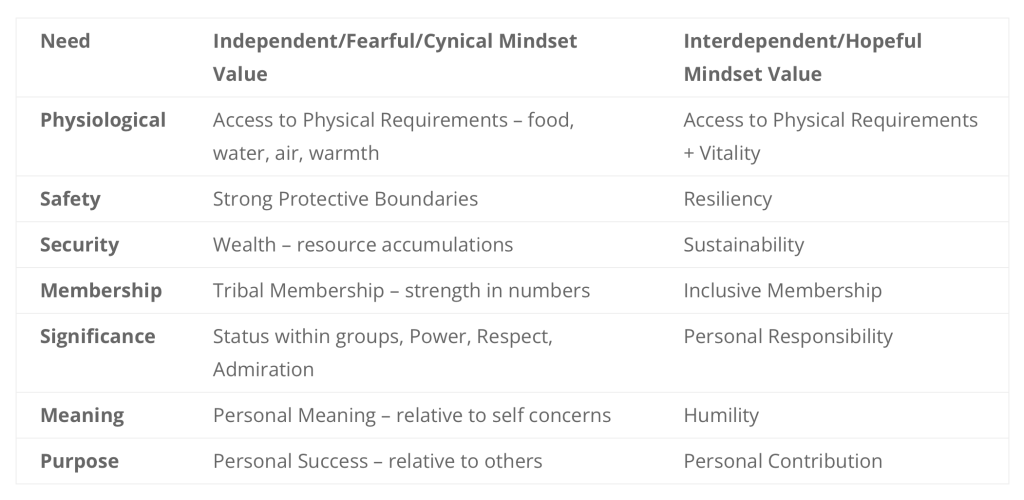In response to a letter from a college student Arthur Miller wrote about Death of a Salesman and his take on tragedy in general.
I see man’s happiness frustrated until the time arrives when he is judged, given social honor and respect, not by what he has accumulated but by what he has given to his society. (emphasis added) This ideal is posited not for itself, but because I know that the frustration of the creative act is the cause of our hatred for each other, and hatred is the cause of our fears. We reward our dealers, our accumulators, our speculators; we penalize with anonymity and low pay our teachers, our scientists, our workers who make and do and build and create. And so the urge that is in all of us to give and to make is turned in upon itself, and we accept the upside-down idea that to take and to accumulate is the great good.
Millar lamented the idea that western culture rewards taking and accumulation rather than creating and giving to society. The opposing positions he identifies here arise from differing values that a society may hold. A society that admires taking and accumulation will have values like those shown below for the Independent Mindset.

On the other hand, a society that appreciates creating and contribution to that society will have values that are in line with the values shown above for the Interdependent Mindset,
It has been said that the tragedy of Death of a Salesman is that Willy spends the entire play unable to accept the fact that he was unsuccessful in obtaining the American Dream. Willy believes that success can be obtained in life by a person’s contacts and attractive personality. He instills this idea in each of his sons.
But it is the nature of the American Dream itself that is the context within which Willy’s tragic story unfolds. Willy Loman lived in a time and place where taking and accumulating were seen as the undisputed goals of life. In Loman’s view the way to succeed in reaching those goals was to use his affable personality to gain access to people, people he believed would help him advance toward success. And to Willy success meant gaining social status through increased popularity and financial success.
It is indeed tragic that Willy Loman failed to succeed by his chosen means but there is a deeper tragedy involved, the essential emptiness of the American Dream. To pursue this dream is to believe that “to take and to accumulate is the great good”. This assumption is inherently tragic because it leads inevitably to devastating consequences such as those we see playing out in the world today; unbalanced natural systems, economic disparity, social injustice, etc.
The foundation for the tragedy in Death of a Salesman, Willy Loman’s failure to succeed, is the social fabric of his life, the untenable and even dangerous values supporting the goals of taking and accumulating that are at the heart of the toxic American Dream. Given its tragic outcomes it might be more appropriately called the American Nightmare. Waking up from this nightmare requires us to abandon the values of the Independent Mindset and instead adopt the more sustainable and compassionate values of the Interdependent Mindset. A society built on these values would tend to be one where, as Arthur Miller hoped, people would be “judged, given social honor and respect, not by what [they had accumulated] but by what [they had] given to society.”

